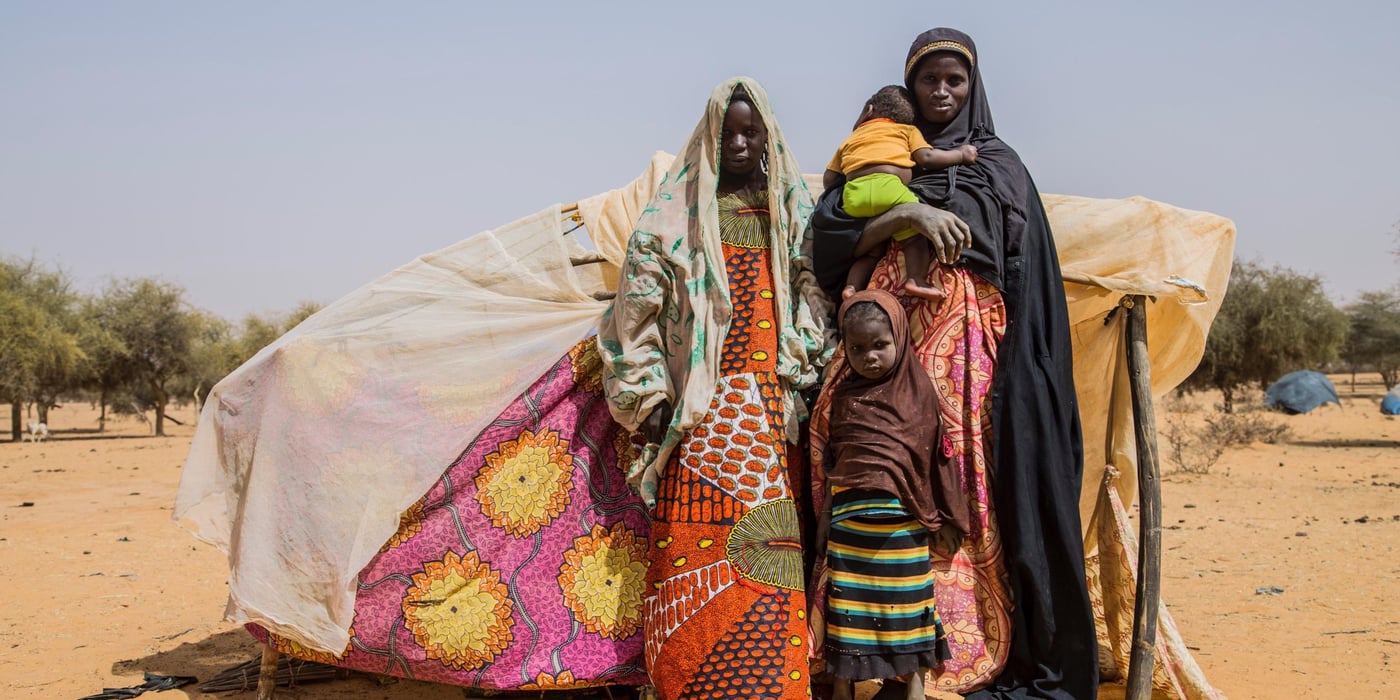
Monguno, a small town in northeast Nigeria, used to be home to 130,000 people. Over the past few months, the population has expanded to 350,000 people. The vast majority of the newly arrived are internally displaced people seeking safety and security for themselves and their families, away from insurgency and violence.
The crisis in Nigeria is among the fastest growing displacement crises in Africa. Since 2009, violent attacks on civilians by the armed group Boko Haram have left widespread devastation in northeast Nigeria, and approximately two million people are displaced within the country.
Hunger
Many families have not eaten for days when they reach Monguno and they arrive severely malnourished.
“We are hungry and we need food. Life in the camp is hard, it is very hot and the water is of poor quality. Many people die from hunger,” says Fatima, an older resident of one of the camps in the town.
Fatima walked with her daughter and her grandchildren to Monguno from Marte, a town 40 kilometers away. Over the past few months, Monguno has seen an influx of thousands of people from Marte, which continues to be affected by the conflict.
We are hungry and we need food. Life in the camp is hard, it is very hot and the water is of poor quality. Many people die from hunger.Fatima, internally displaced Nigerian
Lack of income
To gain an income, Fatima collects and sells firewood, but the money is not enough to feed her family. They live on one meal a day.
“Many children die of lack of food or bad water, the situation is very difficult,” says Fatima.
Waterborne illnesses, such as diarrhea and cholera, particularly affect children and older people with weak immune systems. NRC’s country director in Nigeria, Olivier David, is worried and says the situation for the population in Monguno is dire.
“Despite the declared state of emergency, the town has received little humanitarian assistance and what we have been able to deliver so far barely scratches the surface of addressing the urgent needs for food, water and sanitation, and shelter,” says David.
Pushing the limits
The small town is now home to more than double its former population, with current local services and infrastructure being severely strained in their ability to tailor to the immense needs of the displaced population.
“The population in and around Monguno are dangerously close to famine. If these communities do not receive assistance, we will be looking at an even greater disaster. Their needs are large and urgent and the global community must do more to reach the people in need now,” says David.
Must do more
Earlier this month, NRC conducted a security and programme assessment of Monguno in an effort to expand our activities in northeast Nigeria.
“Initial assessments underline the critical humanitarian needs in Monguno, which include food assistance, shelter as well as securing clean water and sanitation facilities”, says David.
As humanitarian actors increasingly have access to the northeast, NRC endeavors to establish presence in liberated and formerly inaccessible areas such as Monguno.
“We are looking to increase our funding in order to meet immediate humanitarian needs,” says David.
As the conflict severely restricts people’s access to markets and farmlands, their needs for food and clean water are not met.
“The result is that agricultural production has dropped, which we expect will lead to long term food insecurity,” says David.




